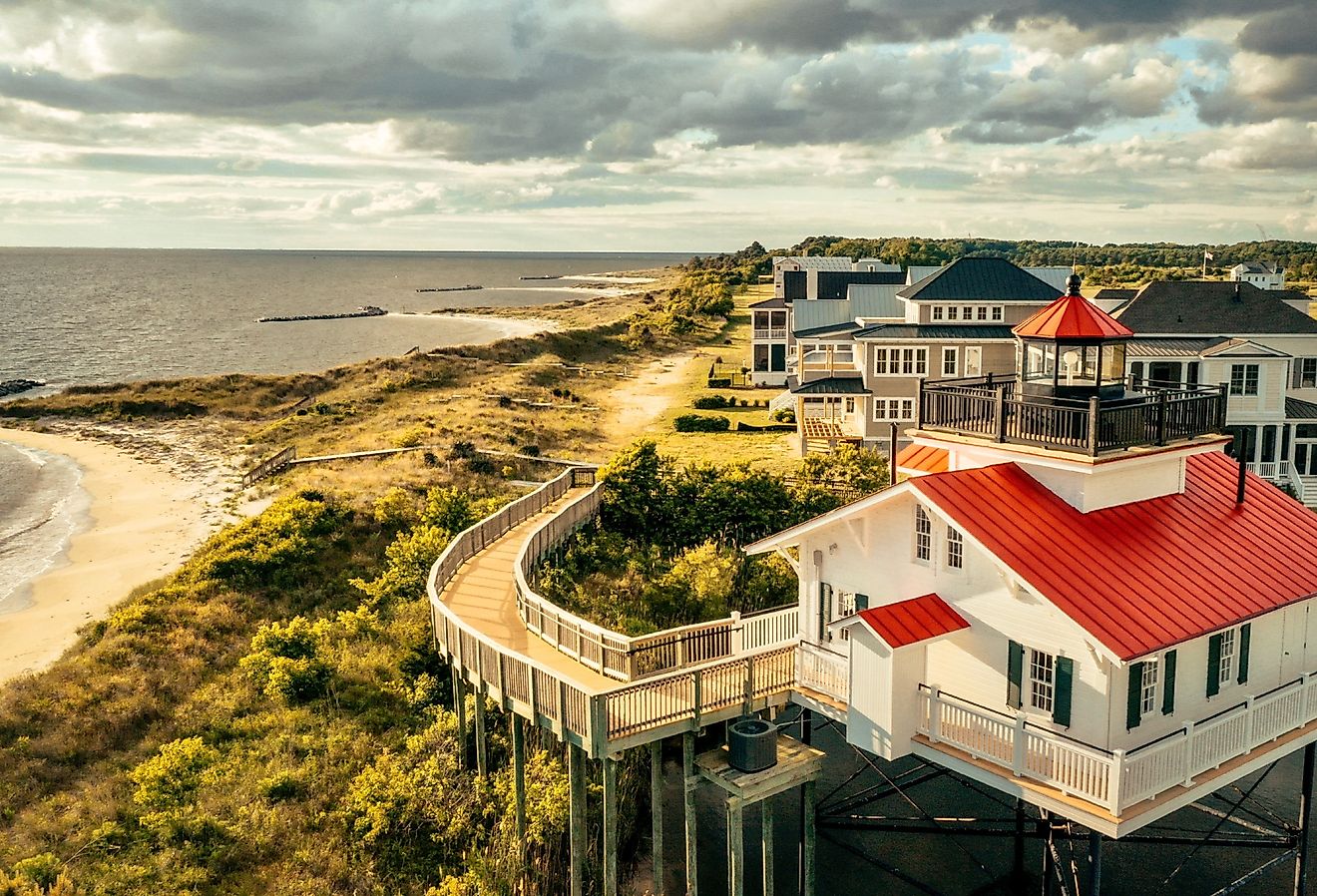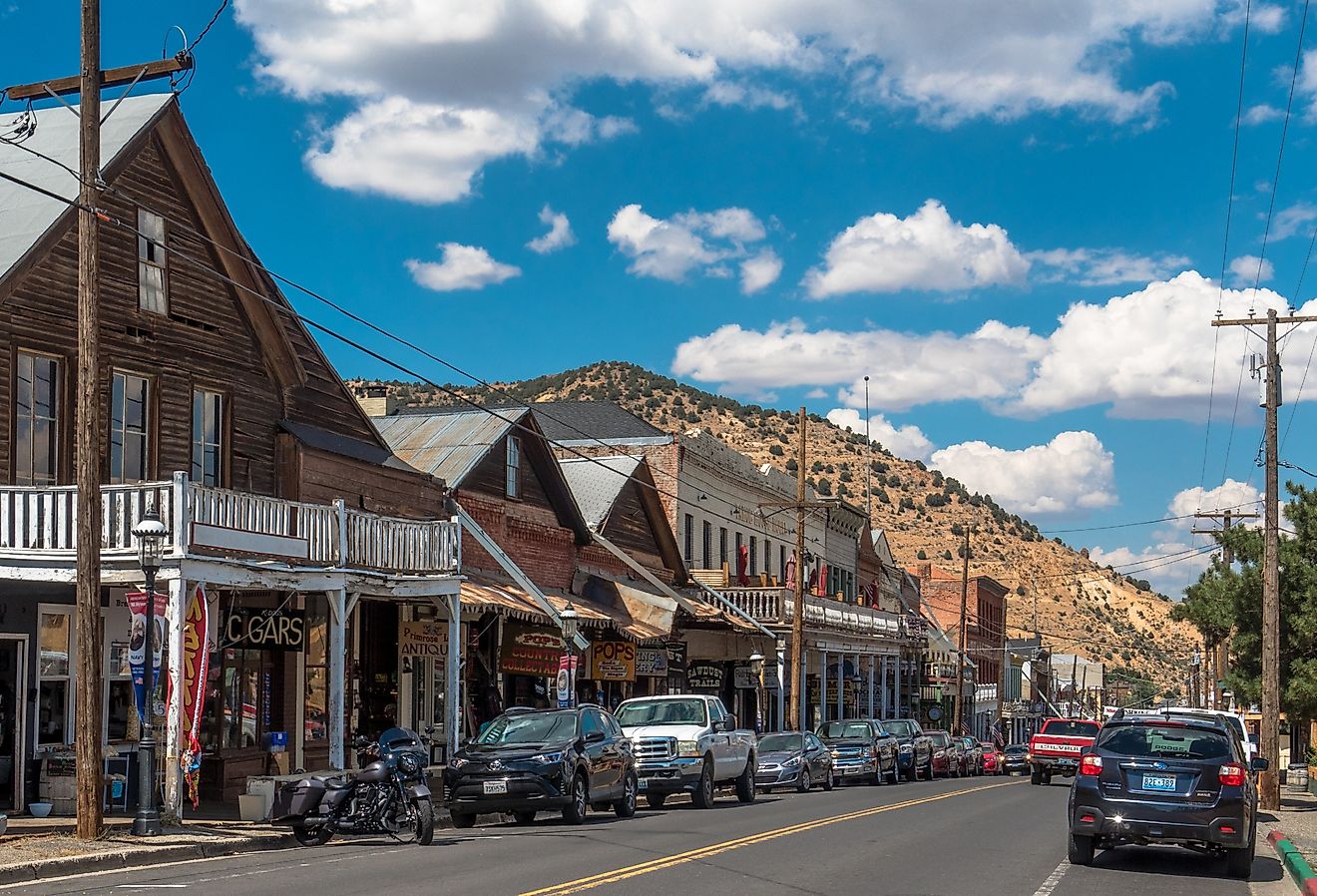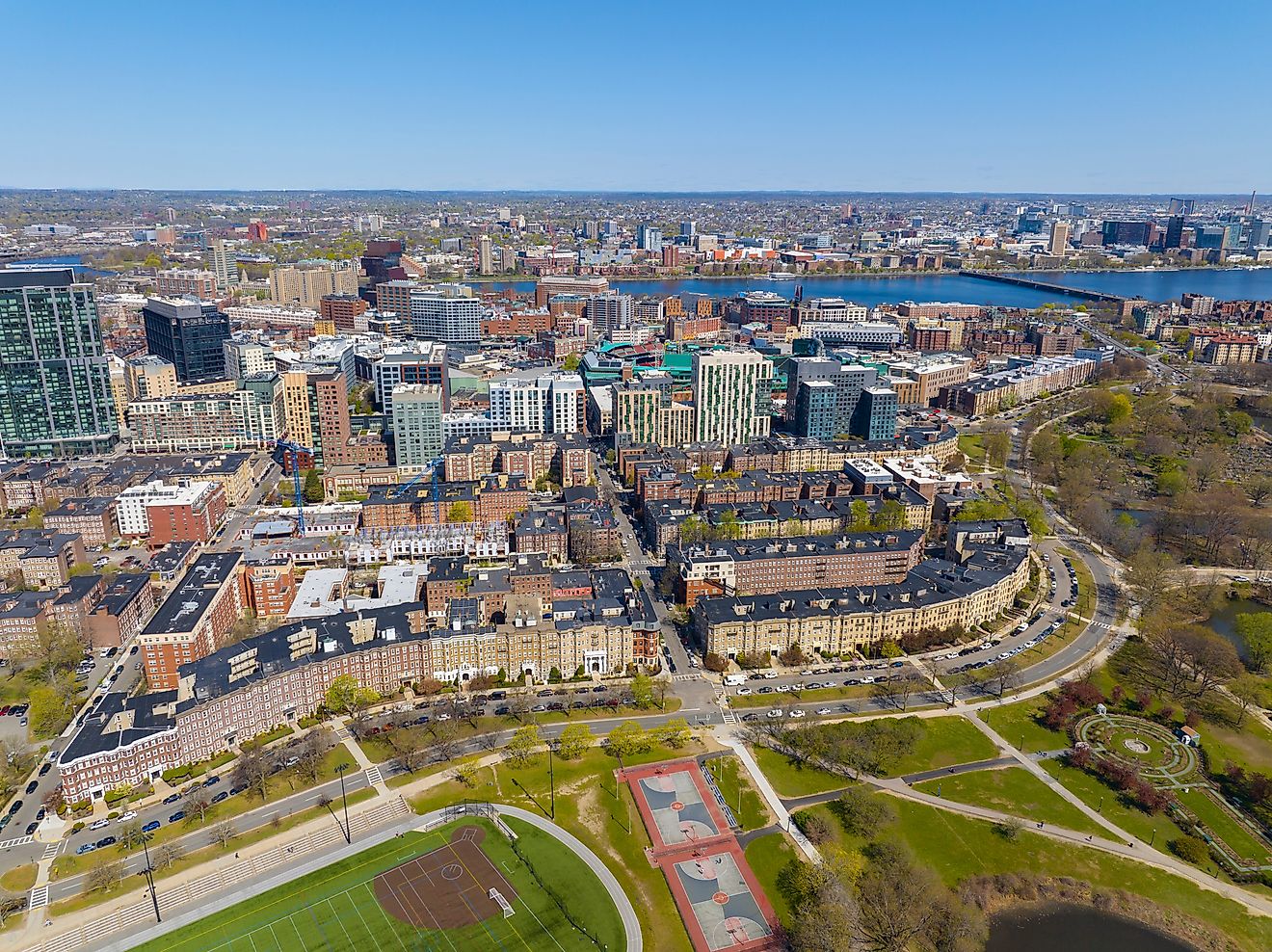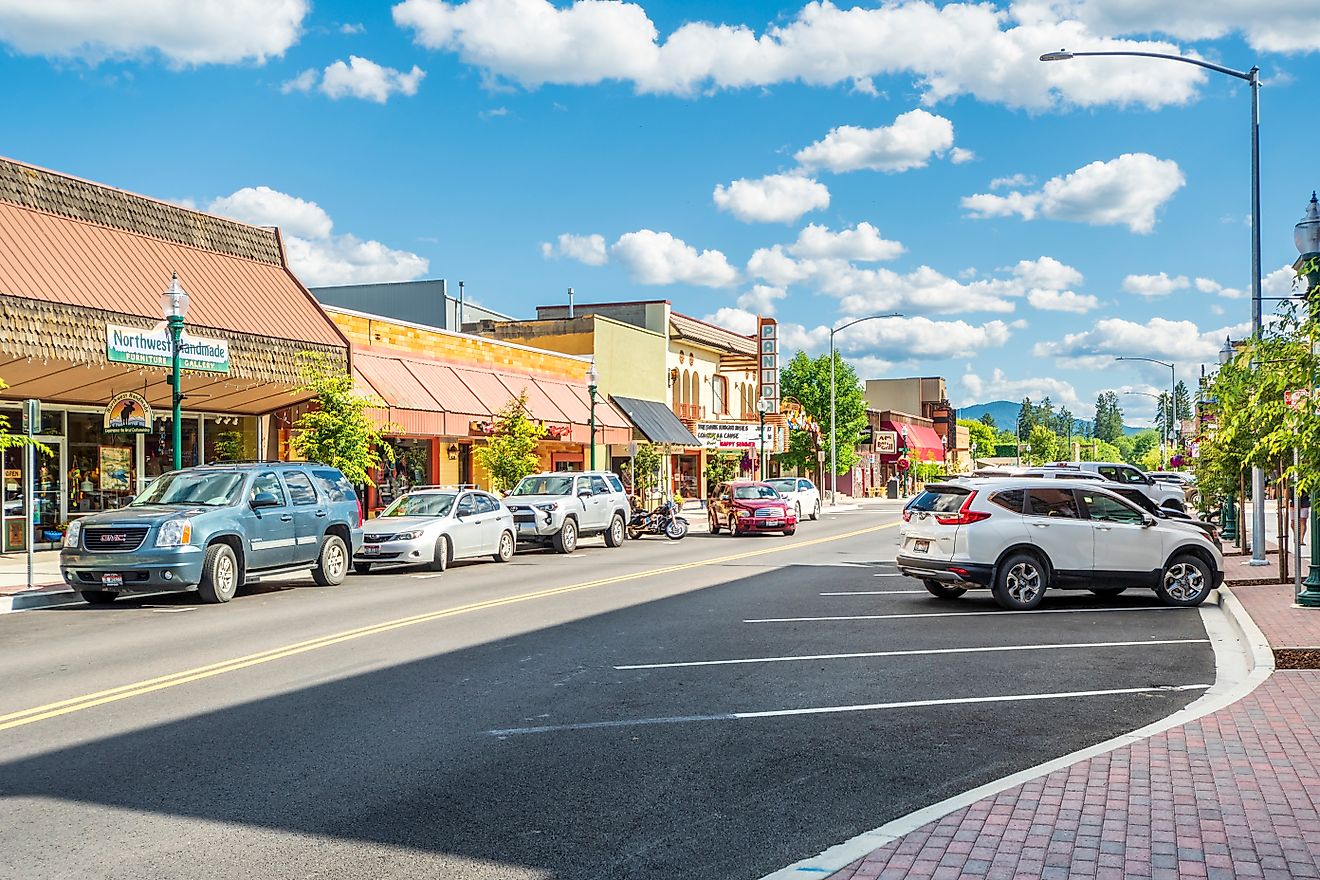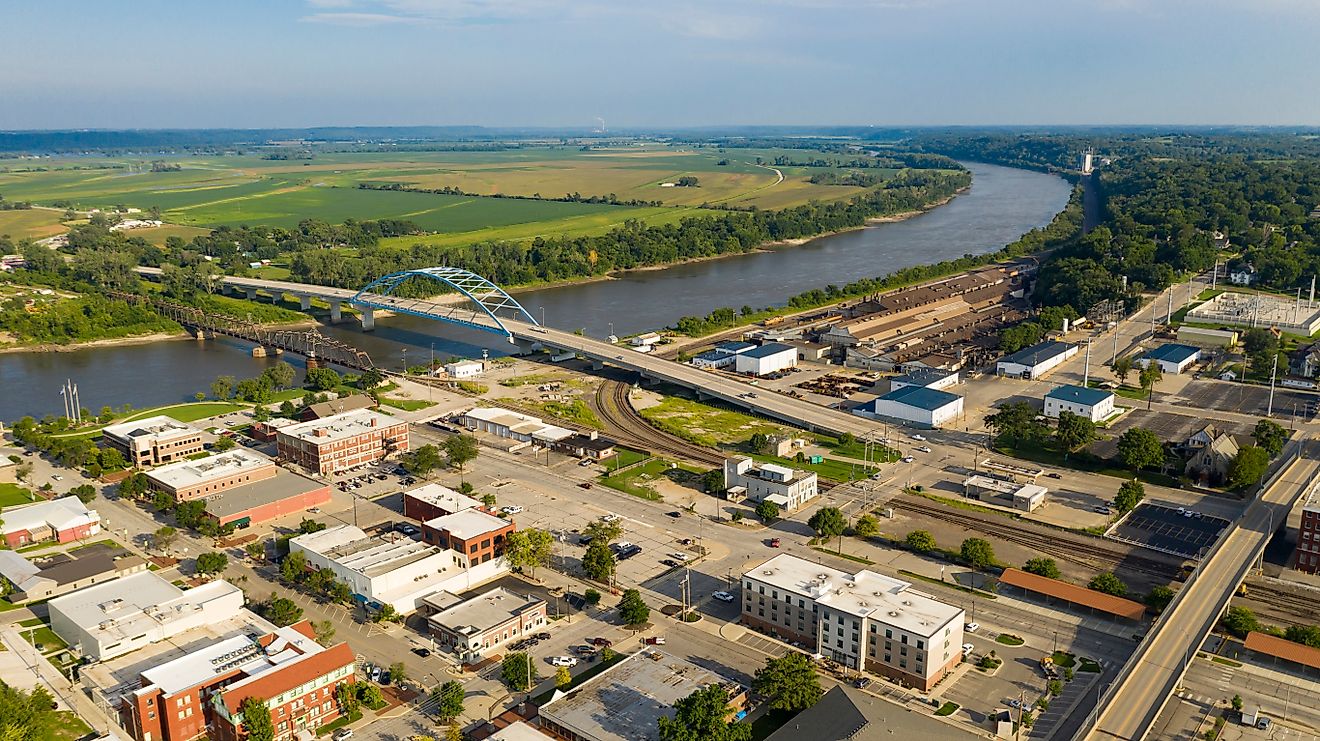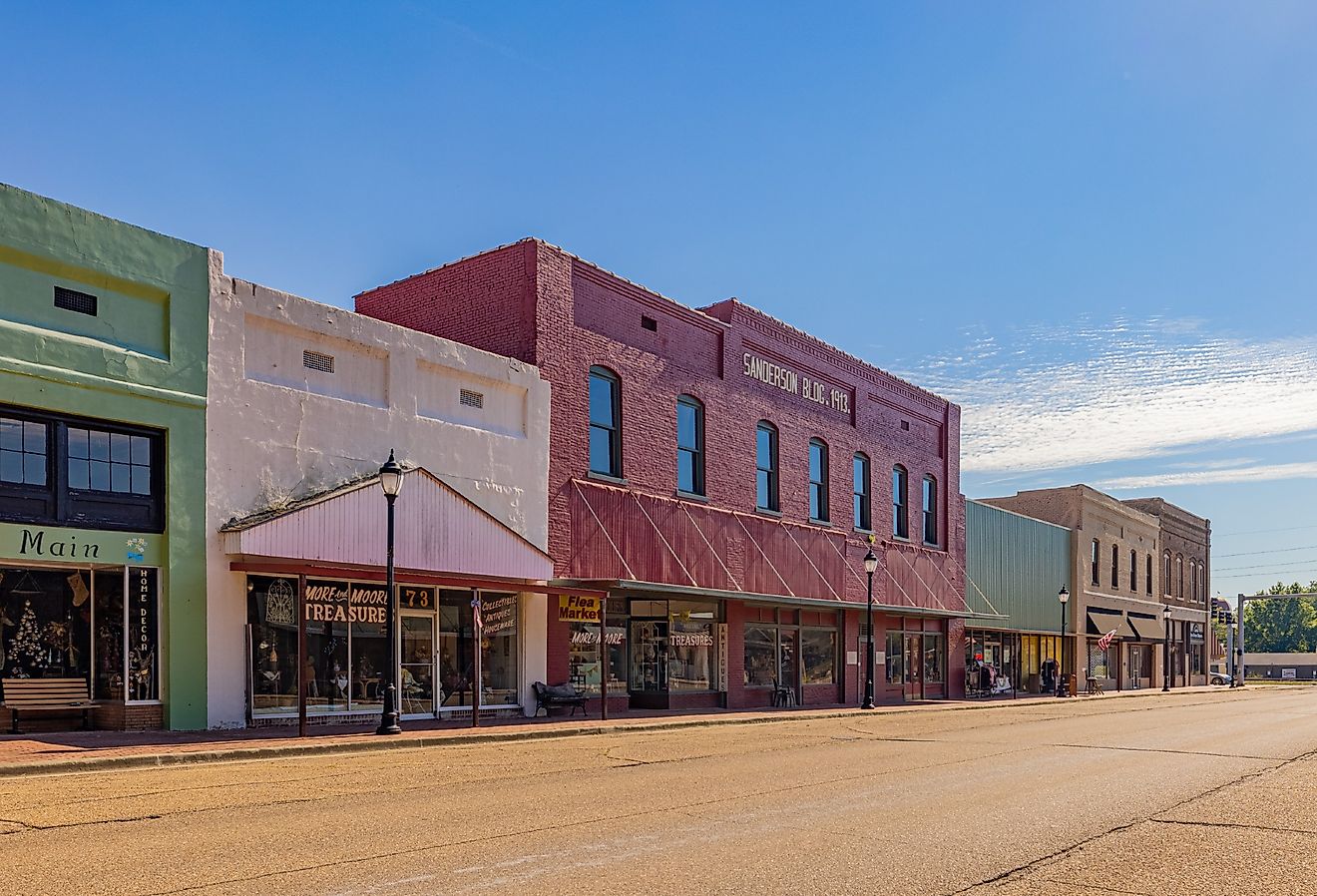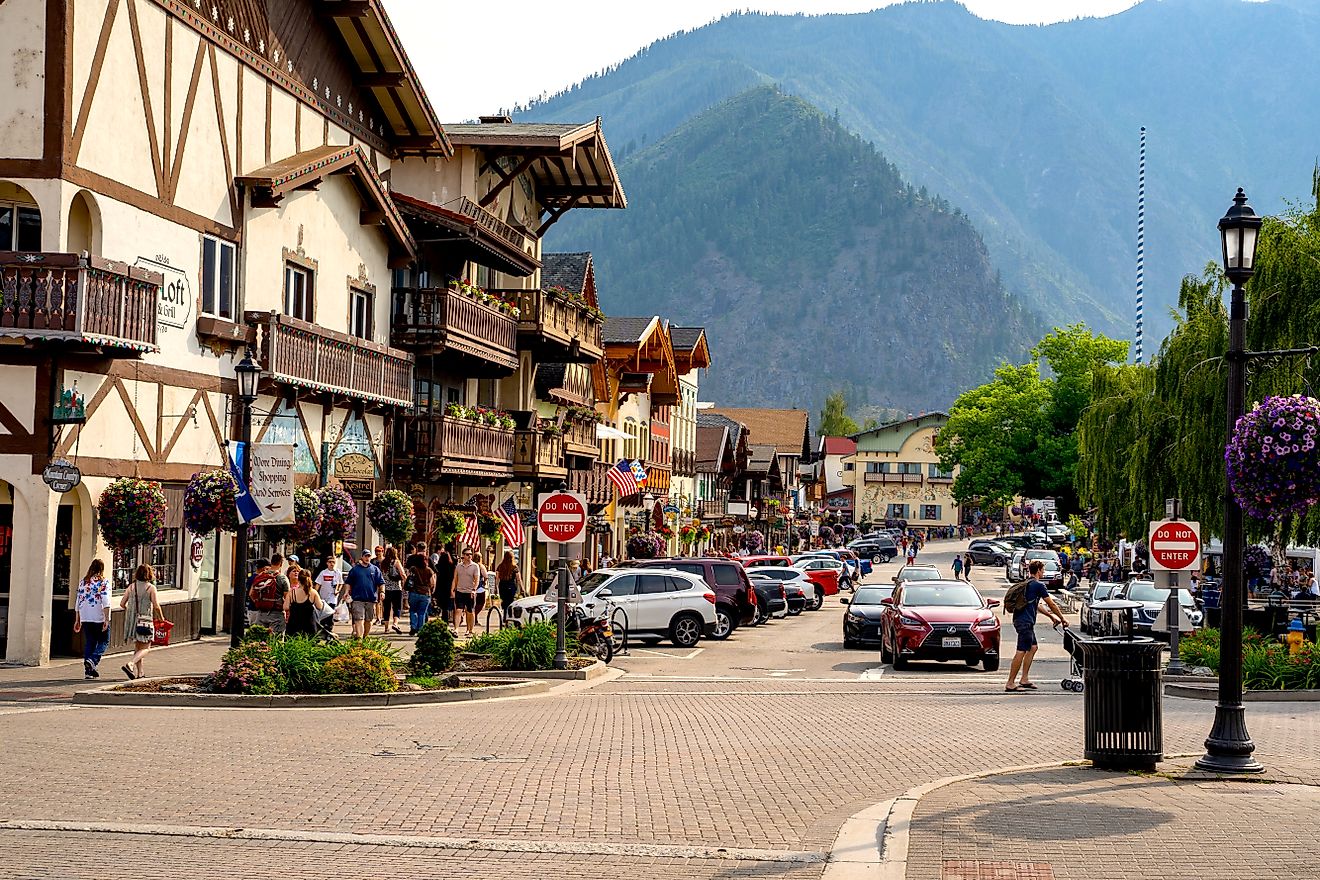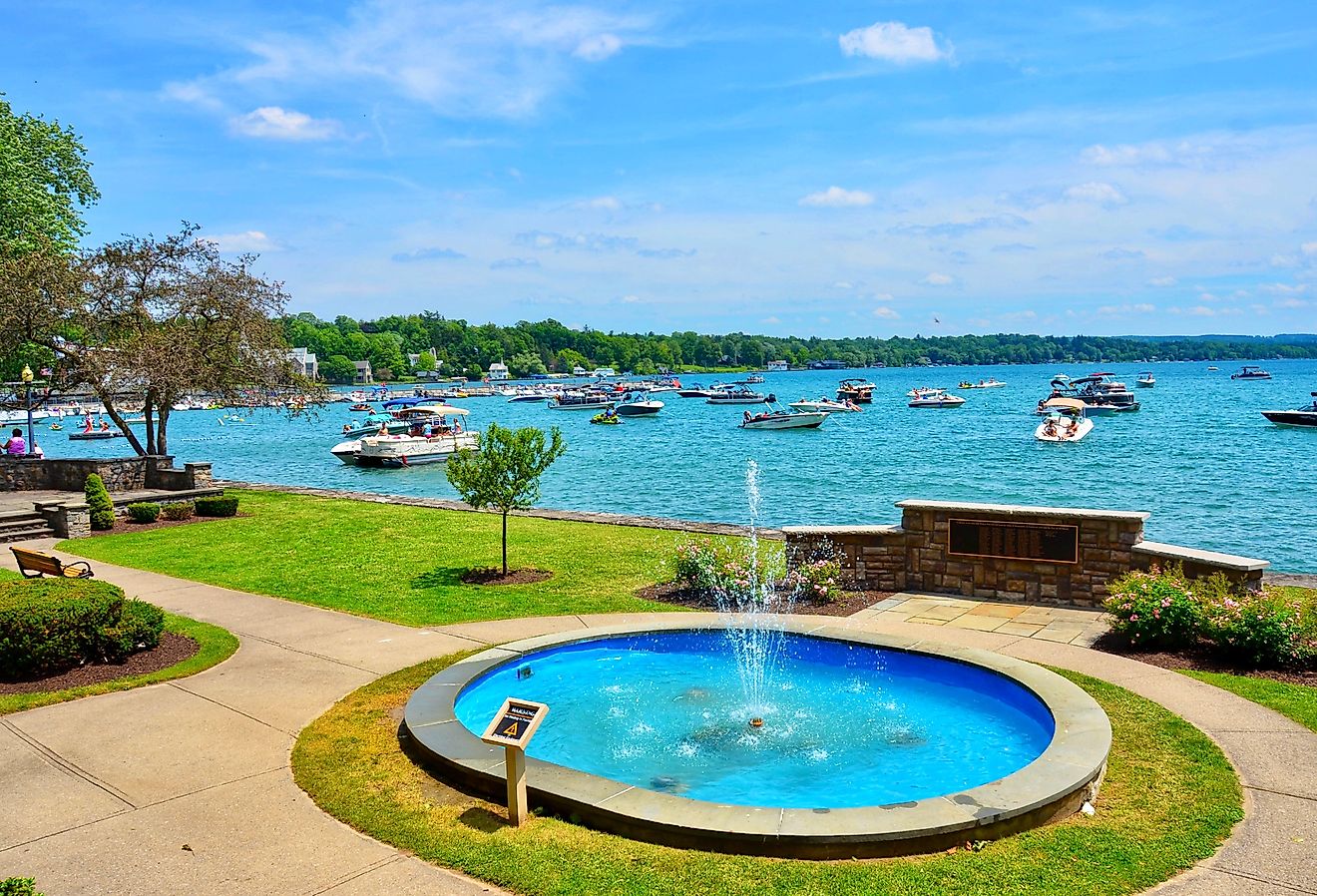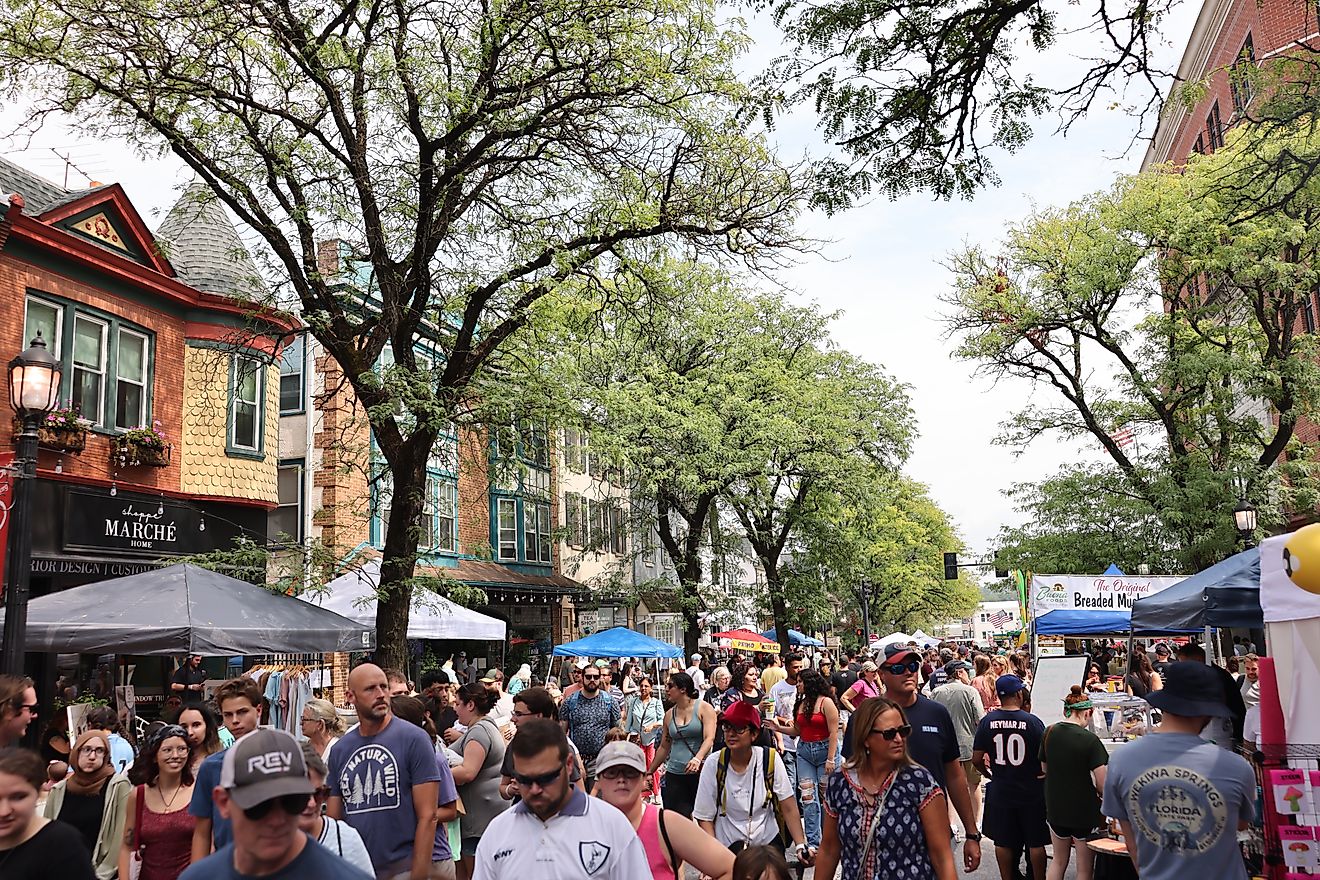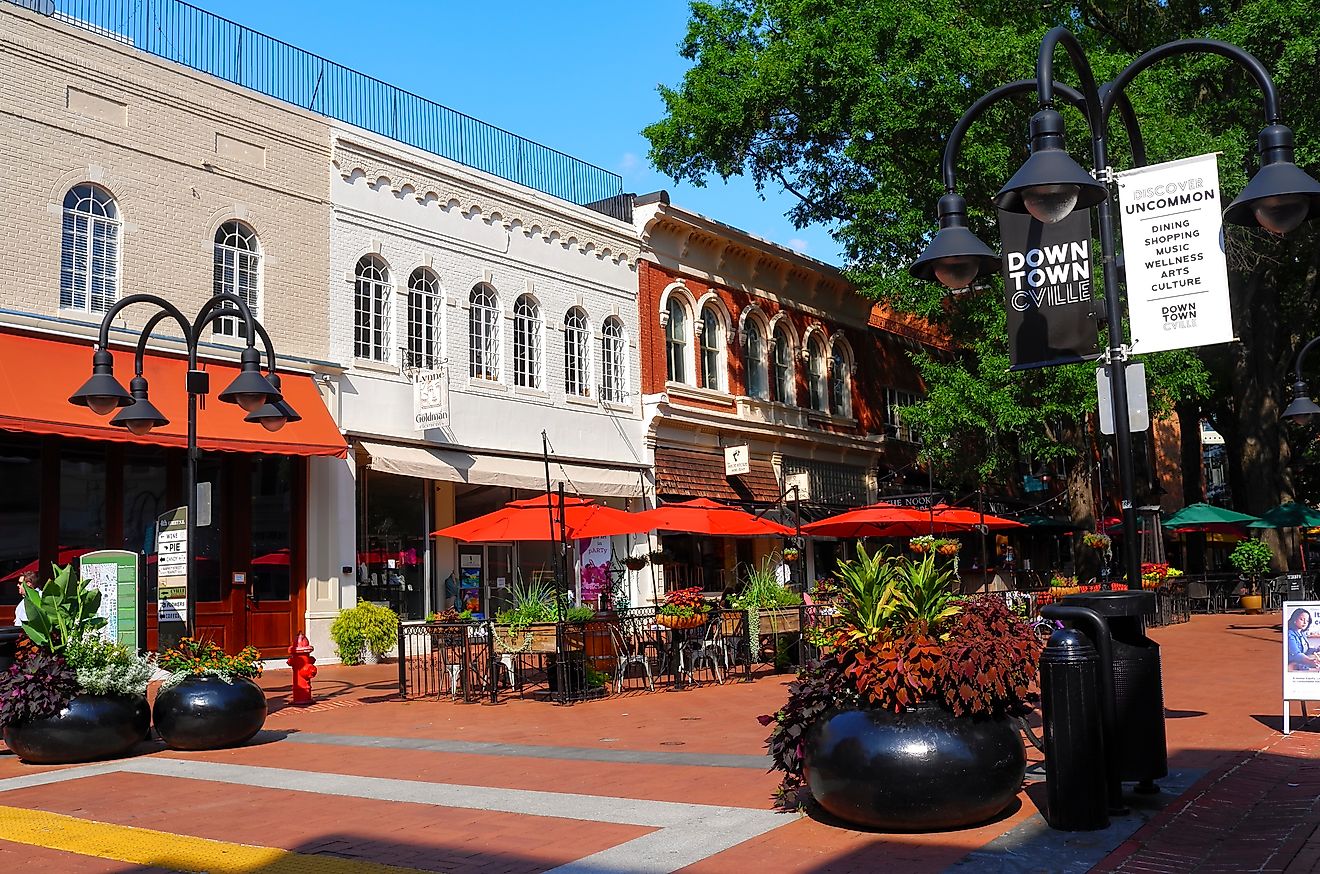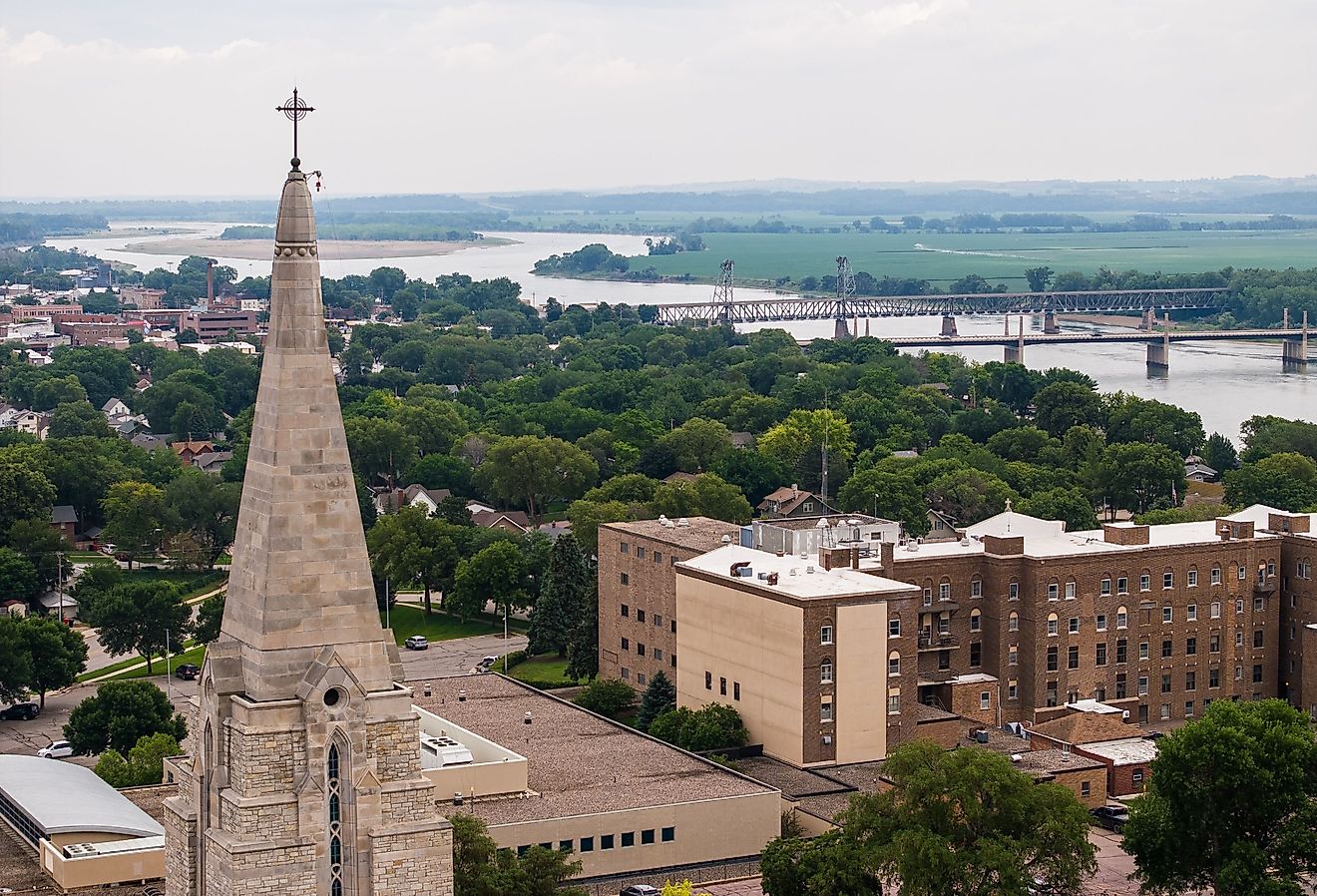
Sioux City, Iowa
Sioux City, Iowa, which has been twice named an All-America City by the National Civic League, acts as the regional center for commerce, employment, industry, retail trade, healthcare, educational opportunities, and tourism in Northwest Iowa, Southeast South Dakota, and Northeast Nebraska. Unique sights, regional eateries, 70 miles of trails for recreation, art and music festivals, concerts, live theaters, and significant athletic events are all found in Sioux City.
Geography And Climate Of Sioux City

Sioux City is a big city spread across the counties of Woodbury and Plymouth, in the northwestern portion of the US State of Iowa. The city is situated where South Dakota, Nebraska, and Iowa come together at the Missouri River's confluence with the Big Sioux and Floyd rivers. The recognizable Loess Hills formations are where some of the city's areas are located. Sioux City covers a total area of 154.43 sq. km, of which 151.41 sq. km is occupied by land, and 3.02 sq. km is covered by water.
As per the Koppen Climate Classification, Sioux City experiences a humid continental climate, which is typical of Iowa. In Sioux City, the seasons are lengthy, hot, and humid in the summer; cold, snowy, and windy in the winter; and partly cloudy all year. Throughout the year, the average temperature ranges from 13°F to 86°F, and it is infrequently either below -6°F or above 94°F. The year's hottest month is July, having an average daily high temperature exceeding 75°F. January is the year's coldest month, with an average daily temperature of less than 41°F. Sioux City typically receives 32 inches of snow annually and 30 inches of rain yearly.
Brief History Of Sioux City

A French-Canadian trader named Theophile Bruguier arrived in the area in 1849. The area was first laid out in 1848 by William Thompson of Illinois and was initially named Thompsonville. When Dr. John Cook laid the city in 1854, he gave it the name Sioux City in tribute to the Big Sioux River and the Sioux Indians. Since the Lewis and Clark expedition traveled through the region in 1804, it has served as a hub for westward-moving tourists and settlers. Early in the 20th century, Sioux City expanded to become the tenth-largest railroad hub in the country, and it still serves as a significant hub for transportation even today.
The Population And Economy Of Sioux City

Out of 1,022 cities in Iowa, Sioux City has the fourth-highest population, with 86,419 residents. Sioux City's population is growing at a pace of 0.36% annually. White (Non-Hispanic) (66.7%), White (Hispanic) (13.7%), Black or African American (Non-Hispanic) (4.19%), Two+ (Non-Hispanic) (3.51%), and Other (Hispanic) (3.11%) make up the top 5 ethnic groups in Sioux City. With a poverty rate of 13.91%, Sioux City has an average household income of $69,899 per year. The median monthly rent in the last few years has been $797, and the average residence is worth $123,100. In Sioux City, the median age is 34.4 years, 33.4 years for men, and 35.6 years for women.
For the third consecutive year and a total of ten times, the Sioux City Metropolitan Statistical Area (MSA) is ranked first in the US for economic development. When the stockyards were closed at the start of the twenty-first century, meatpacking remained significant. Clothing, electronics, chemicals, and fertilizers are all manufactured in this city. Significant economic activities in Sioux City include transportation, services, wholesale trade, and gaming at riverboat casinos.
Attractions In And Around Sioux City
Hard Rock Hotel And Casino

The Hard Rock Hotel & Casino is an ideal destination for those seeking entertainment. There are various slot machines and gaming tables available at the casino. In addition, the casino has more than 50 rooms with a rock and roll motif, three restaurants, an outdoor pool, and other amenities. One can enjoy an alcoholic beverage at this attraction and then watch a band perform.
Sioux City Orpheum

This theater, one of the biggest of its kind in the city, was built in 1927. It has a three-story auditorium with room for 2,650 people. It also has numerous guest rooms, prep rooms, and other spaces. This theater has featured some of the best performances ranging from ballet to symphonic performances, by talented entertainers like Fred Astaire, Katharine Hepburn, and many more.
Sioux City Public Museum

In the past, Sioux City was a significant player in the meatpacking sector. The Sioux City Public Museum honors that period of the city's history by featuring images and displays even though the packing houses have all vanished. The city's stockyards, through which countless animals and pigs would travel, have also been highlighted. Few people know that the area initially contained an underground ocean home to Plesiosaurus and other sea life. One can also observe models and fossils at this museum.
Sioux City Art Center
The Sioux City Art Center is housed in an award-winning contemporary structure that opened in 1997. The Center serves as a significant collection that has developed since the 1930s. The collection includes work by many national and international artists, although the emphasis is on Iowan and Midwesterner artists. Grant Wood's Corn Chamber artwork, which was ordered for Sioux City's Martin Hotel in 1927, is on display in a separate room.
Dorothy Pecaut Nature Center
Visits to the Dorothy Pecaut Nature Center are among the top things to do for fun in Sioux City for those who enjoy the outdoors. The Dorothy Pecaut Nature Center is located on a beautiful property and provides visitors with both inside and outdoor areas to see wildlife. Additionally, the center offers indoor lessons, an amphitheater with outdoor seating, gardens, and oak trees. The park provides a strenuous climb with breathtaking vistas and background music of chirping birds.
Stone State Park

This well-known state park in Iowa is located next to the Sioux River and provides tourists with many fantastic things to do. The designated picnic area has tables and grills where visitors can have a picnic. One can explore a variety of amazing hiking paths in this park, including excellent camping facilities. One will have the impression that one is walking in the heart of a forest because of the park's oak trees. One can also see some wildlife here, which includes turkeys, deer, red foxes, coyotes, and others.
There is always something to do and several sights to see in Sioux City, a beautiful city in the northwest of Iowa that makes for an entertaining vacation destination. Everybody can find something special to attract them to the city. Excellent parks, historical museums, arts, and crafts, theaters, antique stores, retail centers, lakes, enjoyable and exciting outdoor activities, and many more can be found in Sioux City.
